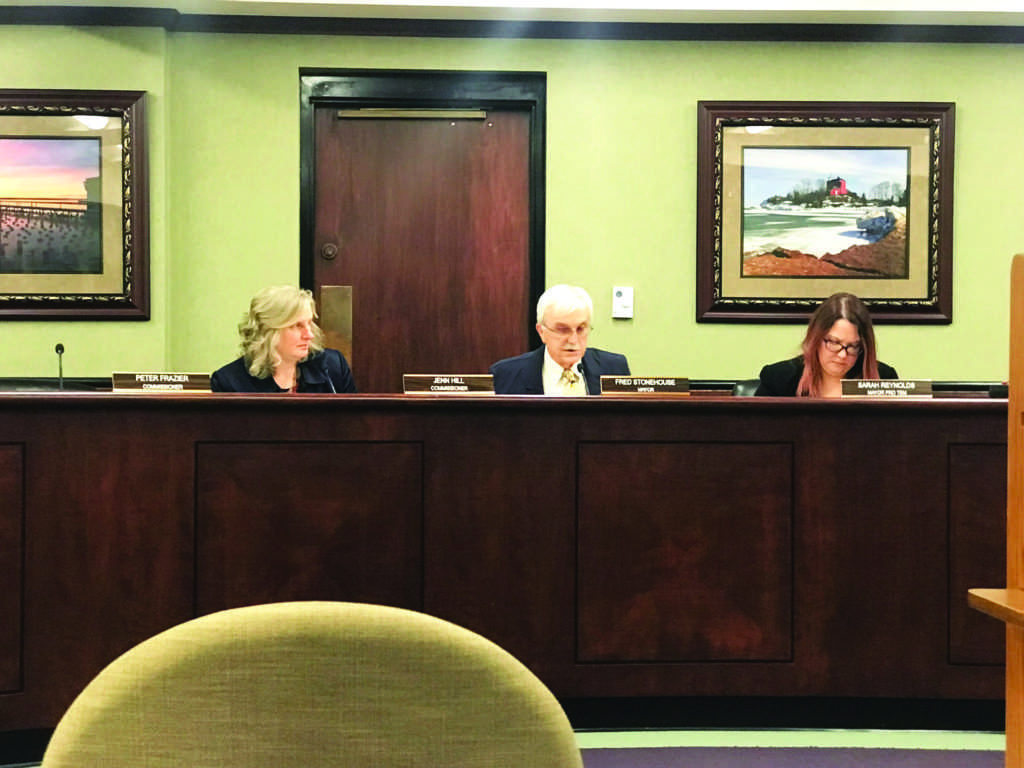Marquette City Commissioners approved a $15,000 fund that will be allocated for evaluations and improvements on corrosion control for the city water supply at a meeting on Monday,
Nov. 26.
The city’s current lead levels are at 11 parts per billion (ppb), which is below the current action level of 15 ppb. However, by the year 2025, the action level will decrease to 12 ppb.
“This would suggest that the city may have a challenge in consistently meeting the lead standard in the future,” City Clerk Kris Hazeres read in a background statement at the meeting.
Gov. Rick Snyder and the Michigan Department of Environmental Quality amended the Lead and Copper Rule earlier this summer after a year-long process to enact the changes. Snyder’s initial proposal was in January for a lead level of
10 ppb.
Some non-residential buildings such as the Marquette Area Public Schools have been privately tested and reported having lead concentrations greater than 15 ppb.
“[The city] just wanted to check and stay ahead of the game so [it] couldn’t be accused of avoiding it,” Commissioner Dave Campana said. “The levels that they did find were very minimal above the recommended amount; much less than I think what was at the high school and at Northern.”
Three on-campus buildings—the PEIF, Thomas Fine Arts and the Learning Resource Center (LRC)—were initially closed on May 16 because precautionary testing of water sources in each facility resulted in inconsistent lead level readings.
NMU alleviated 50 lead-tainted sources across the three buildings with new drinking fountains and new filters on existing water features before the fall semester.
Mayor Fred Stonehouse added that opportunities like this are important for the city to get ahead of problems, rather than waiting for them to arise.
“When you think about it, the primary responsibility of any civil government is to fight for the health and welfare of its citizens—their well being—and this is a prime example of working to do that,” Stonehouse said. “I’m very happy to vote for this particular issue.”
Curt Goodman, the director of Municipal Utilities recommended that the work be done by the company Fishbeck, Thompson, Carr & Huber (FTC&H), which has provided engineering services to Marquette for over 25 years.
“These guys have done a number of other projects for the city and I’m very happy with their work,” Commissioner Paul Schloegel said, who made the motion to approve the
funding.
FTC&H will use software that assists in the assessment of changes resulting from corrosion control chemical modifications, which will calculate pH, alkalinity and various stability indices, according to the company’s proposal sent to the commission. They will then submit a proposal of recommended changes in current water treatment practices, and the city can submit the proposal to the Marquette Department of Environmental Quality (MDEQ) for
review and acceptance.
If the MDEQ accepts the proposal, FTC&H will prepare a budget that will address any possible changes needed to the water treatment plant, including new chemical storage and feeding equipment.
All commissioners present along with the mayor and mayor pro tempore approved the proposal for FTC&H to begin their work with Marquette’s water supply.
“I look forward to having this done and making sure we continue to have drinking water for the community,” Commissioner Jenn Hill said.





























